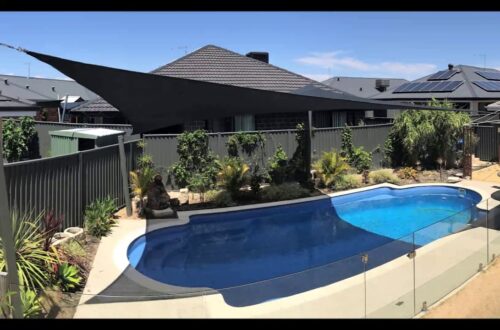
Real Estate Investment: Where To Find The Proper Houses To Flip
Table of Contents
If you’re looking to invest in real estate, it’s important to understand where to find the best houses to flip. There are a variety of factors to consider, such as the current market conditions, the size of the home, and the location.
To help you find the right property, we’ve put together a list of the best places to find houses to flip in your area. Check out our list and find the perfect house for you!
In order to find houses to flip, it is important to understand where to look. If you are looking for properties in desirable areas, then you will want to head to areas like the city or the suburbs. However, if you are looking for properties in more affordable neighborhoods, then you will want to look for properties in the rural area. There are a variety of factors that you will want to take into account when looking for houses to flip, such as the value of the property, the amount of money that you are willing to put into repairs, and the amount of time that you are willing to spend on the property.
There are a few things to keep in mind when flipping houses: Location, Location, Location. Make sure to research the area you’re looking to invest in, and find houses in good neighborhoods that are likely to appreciate in value.
Once you’ve found a few potential houses to flip, it’s time to do your due diligence. Check the property’s zoning, check the utilities, and make sure the house is in good shape. Once you’ve verified all of these things, it’s time to get to work.
Here are a few tips to help you get started:
1. Start by preparing a budget. Pretend you’re buying the house outright. Know how much you can afford to spend on repairs and improvements, and factor that into your budget.
2. Get started by meeting with the property’s current owners. Find out what their plans are for the house, and see if you can work together to come up with a mutually agreeable solution.
3. Get pre-approved for a loan. This will help you get the money you need to make repairs and improvements, and also help you get a good interest rate.
4. Network with other investors. Find people who have done similar renovations in the past, and ask for their advice.
5. Be prepared to work hard. Flipping houses is a tough business, and there’s a lot of competition out there. Don’t be discouraged if you don’t get the house sold the first time around. There’s always room for another investor in the market for good properties.
How To Find Houses To Flip In Your Area.
If you’re like most people, you probably have a shortlist of houses you want to flip in your area. But how do you know which ones to target?
There are a few key things to keep in mind when hunting for houses to flip. First, look for houses that are in good shape. They should be structurally sound, have no major issues, and be in an area that is growing or has a lot of potential. Second, consider the neighborhood. Make sure the area is safe and has a good reputation. Finally, factor in the price of the house and the market conditions.
The Benefits Of Flipping Houses.
There are a few reasons why flipping houses can be a great investment. First, because it’s a relatively new industry, there are still a lot of opportunities to make money. Second, flipping houses is a very simple business. You don’t need a lot of capital to get started, and you can quickly make a lot of money by buying low and selling high. Finally, flipping houses is a great way to make some extra money while you continue to build your own business.
Tips For Buying A House To Flip.
When you’re shopping for a house to flip, there are a few things you need to keep in mind.
1. Location is key.
When you’re looking to buy a house to flip, the location is key. Make sure the house is in a good area and has potential to increase in value.
2. Size is also important.
When you’re looking to buy a house to flip, make sure the house is the right size. You don’t want to buy a house that’s too small or too big. It’s important to find a house that has the potential to increase in value, so make sure it’s big enough to fit in the remodel and upgrades you want to make.
3. Make sure the house is in good condition.
When you’re shopping for a house to flip, make sure the house is in good condition. Make sure the floors, walls, and roof are in good condition. Make sure the appliances are in good condition and the plumbing is in working order.
4. Get a good home inspector.
When you’re shopping for a house to flip, make sure you get a good home inspector. The home inspector can help you make sure the house is in good condition and has potential to increase in value.
The Different Types Of Houses You Can Flip.
1. Single Family Home:
A single family home can be a great way to get started in the flipping business. They are usually easy to sell, and the process of flipping them is relatively simple. You will need to put in a lot of effort and time to get the best results, but the rewards can be great.
2. Multi Family Home:
Multi family homes are a bit more complicated to flip. You will need to have more than one investor involved, and the process can be more time-consuming. However, the potential for greater profits is definitely there.
3. Commercial Property:
Commercial property is something that many people are interested in flipping. This is because the potential for high profits is definitely there. Commercial property is often in high demand, and the process of flipping it is relatively easy.
The Steps To Flipping A House.
1. Understand the market – Determine what type of house is selling for what price in your area.
2. Research the property – Look at recent sales and assess the condition of the house.
3. Make an offer – Be prepared to make a competitive offer that is above asking price.
4. Negotiate – Be persistent and firm in your negotiations, but be prepared to walk away if the seller doesn’t meet your demands.
5. Close the deal – Make sure to get all the paperwork signed and take care of any pesky details.
How To Market A House To Flip.
When selling a house to flip, the key to marketing it effectively is to understand the buyer’s needs and wants. Here are a few tips to help you market your house to potential buyers:
1. Identify your target market.
There is no one-size-fits-all approach when it comes to marketing a house to flip. However, identifying your target market will help you tailor your marketing strategy accordingly. Try to identify the type of buyer who is most likely to be interested in your house, and focus your marketing efforts on reaching them.
2. Equip your house for sale.
Make sure your house is in the best condition possible when you put it on the market. This will help buyers feel confident that they are getting a good deal.
3. Prepare your property listing.
Your property listing is the first impression buyers will have of your house. Make sure it is well-written, informative, and attractive.
4. Get creative with your marketing tactics.
There are a number of creative ways to market a house to flip. Try using social media, online ads, or flyers in local neighborhoods. It’s important to be creative and keep your marketing efforts fresh.
5. Stay organized and keep track of your progress.
Keep track of your progress throughout the marketing process and make sure you are using the right marketing tools for your target market. This will help you stay on track and make the most of your marketing efforts.
The Risks And Rewards Of Flipping Houses.
When you flip a house, you’re taking on a lot of risk. You could end up losing a lot of money. But you could also end up making a lot of money.
There are a lot of factors that go into flipping houses. It depends on the market, the house, and your skills as a flipper. But here are a few tips to help you maximize your chances of success:
1. Know the market.
The first thing you need to do is figure out the market. You need to know what houses are selling for and where they’re selling. This will help you determine what kind of house to flip.
2. Research the market.
Once you know the market, you need to research the house. You need to figure out what it’s worth, what problems it has, and what kind of market there is for it.
3. Figure out your budget.
Next, you need to figure out your budget. You need to know how much you’re willing to spend and what you’re willing to lose. This will help you determine how much you should bid on a house and how much you should expect to make.
4. Determine your skills.
Next, you need to determine your skills. Do you have experience flipping houses? Do you have a knack for negotiation? Do you have a lot of knowledge about the property you’re flipping?
5. Make a plan.
Finally, you need to make a plan. You need to know what you’re going to do every step of the way. This will help you stay organized and keep track of your progress.
If you want to invest in real estate, there are many places to find the proper houses to flip. Some of the most reputable real estate firms will provide you with good information on which houses to buy and which to sell. Be sure to do your research before making any deals, as there can be a lot of variation in prices and conditions.
Flipping houses is one type of real estate investment that may create big returns in the market; however , house flipping isn’t for the faint of heart. A traditional flip includes investing in a house at low priced, making significant repairs and selling it for a larger profit.
Whether you are seasoned or not used to flipping houses, finding the right homes to flip as a kind of your real estate investment can be difficult. To help find the very best properties, weve compiled a listing of ways to discover the perfect houses for flipping.
Where to Find Homes Ideal for Flipping?
Your Local Market or MLS Initially, you should be aware of the average house market prices within these areas youre looking at. To obtain a grasp of the information, check the MLS listings provided by some realty firms or brokers in your area, or talk to an agent who is licensed to access these MLS. You can even verify their MLS listings for foreclosure properties in your area .
By doing this, you can get an idea of how much you might be spending and just how much you may earn back after your upgrades.
Housing and Urban Development
One of the easiest ways to find the perfect house fit for flipping is by referring to U. S. Housing and Urban Development. Hud. gov has listings for several kinds of foreclosed properties or homes which are currently facing foreclosure. These homes is going to be sold for a much lower price and so are ideal for house flipping.
Sheriffs Sale, Estate and Public Auction
Check with your local county clerks office for just about any houses that are going up for auction and bidding. It really is at these public auctions that will you can find great opportunities to bid for properties at a low price.
It is during this stage that you can purchase a foreclosed home at its lowest value. Dont wait for the house to reach the phase to be owned by the lender or own it entered into the REO or bank-possessed property stage.
For Sale by Owners (FSBO)
Most of these houses are being sold directly through the owners, who could be in a rush to sell their house fthest for various reasons. These homes offer great opportunities for flippers, as homeowners will probably want to sell quickly and they’ll likely not mind the thought of a residence flipping for real estate investment.
If youre an investor, always keep an eye out for these properties as some of your best sources for buying homes for flipping then Home Investor Tool isResidential Real Estate Investingand real estate app that includes libraries of repair costs predicated on CLASSES of the properties. Better yet each class has a single story and a two story, and they are traced through the years. Armed with this information as traders are BIDDING on property THEY SET REALISTIC EXPECATONS on what it is going t take to repair a house and that is built to their BID from the very g beginning. HIT seamlessly provides this degree of diversity in ONE APP and all costs are usually suggested but ultimately either approved or changed by eextremely individual investor globally or on each particular property.





